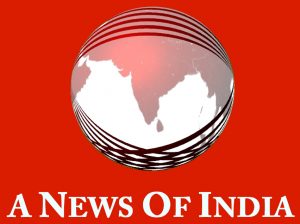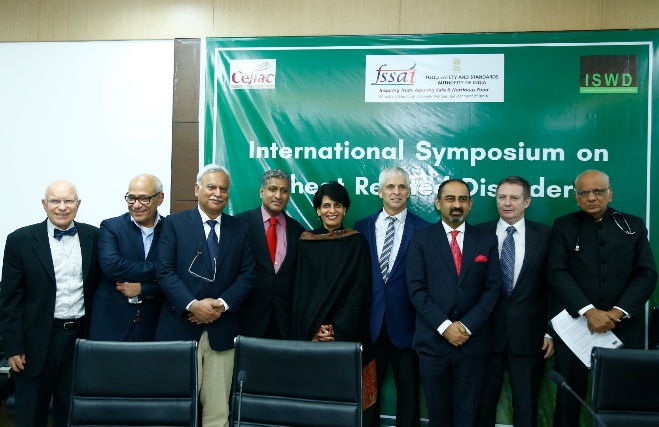@ Vikas Sharma | Sr Journalist
New Delhi: In a bid to discuss and explore the best ways to address the challenges faced by patients with celiac disease and discuss the way forward, the International Symposium on Wheat Related Disorder (ISWD) is being organized on 12th and 13th January 2019, at the India Habitat Centre, New Delhi. ISWD 2019 is being organized by The Celiac Society of India (CSI), the first and the only non-profit organization on a mission to create awareness about early diagnosis and management of celiac disease. The event will be attended by world authorities from across the globe including professionals from USA, UK, Germany, Italy, New Zealand & Israel.
Celiac disease is an autoimmune disease that occurs because of ingestion of a protein, called gluten, which is present in the cereals – wheat and barley. In these patients, the gluten protein is not digested completely and that leads to damage to the small intestinal mucosa (where food is absorbed). With the damage of small intestine, the food is not absorbed and thus, these patients fail to grow in height and weight, develop chronic diarrhoea, anaemia (low haemoglobin), and weakness of bones.
Statistics peg the prevalence of Celiac Disease at 1% at a global level. Additionally, the prevalence of wheat related disease is about 6% and more than 90% cases remain undiagnosed. In India, about 6 to 8 million Indians are estimated to have this disease, and its prevalence in the North Indian community is 1 in 100. The aim of the event, therefore, is to bring to the spotlight this growing condition among medical professionals, other healthcare service providers, and the public at large. There will also be an Expo showcasing gluten-free products.
Speaking about the symposium, Ms Ishi Khosla, Founder President, Celiac Society of India, said, “Celiac disease and sensitivity to gluten in wheat are commonly unreported extensively in India due to lack of awareness. This is also the biggest impediment in prevention and treatment. Through this symposium, the aim is to not target wheat but rather to help those suffering from wheat sensitivity to get diagnosed and to lead better lives. The symptoms and screening tools must be known to doctors, health care professionals, and public and this event will help in doing that and more. With the outcomes of the symposium, we will be presenting a white paper with recommendations to the government from a public health stand point.”
Wheat is listed among the top eight food allergens and adverse reactions to wheat and wheat protein can be in the form of an allergy, celiac disease, skin rashes (dermatitis) or intolerance also known as non-celiac gluten intolerance (NCGI). Symptoms for allergies could be respiratory, asthma, atopic dermatitis, urticaria, and anaphylaxis & many more. In some individuals, it can remain silent without symptoms.
Adding his comments, Dr Tom O’Bryan, DC, CCN, DACBN, Adjunct Faculty, The Institute for Functional Medicine, Scientific Advisory Board-International and American Association of Clinical Nutritionists, said, “Once thought of as a Western disease, Celiac Disease is yet to receive the much-needed concern in India and Asia as a whole. The incidence of this condition has increased five-fold in the last since 1974. Apart from the fact that it can occur at any age and is highly under diagnosed, celiac disease and gluten insensitivity can impact both physical and mental health. The need of the hour is to increase awareness among people and physicians alike. With so many challenges and opportunities, I am sure that this symposium will prove to be the ideal platform in bringing some of these core concerns to the fore.”
Padma Shri Awardee, Dr K K Aggarwal, President, Heart Care Foundation of India, added “Wheat has been a fundamental source of nutrition for ages in India. Due to the growing sensitivity related to this power grain, it has become imperative to create awareness on a larger scale. While a lot of research has been going on in this area, there is still much ground to be covered. The fact that wheat-related diseases are also associated with other conditions such as mouth ulcers, anaemia, osteoporosis, arthritis, easy fractures, etc., there is an urgent need to explore treatment options and safer or less harmful alternatives to wheat.”
Some of the other prominent speakers at the symposium are Professor Anupam Sibal, MD, FIMSA, FIAP, FRCP (Glasg), FRCP (Lon), FRCPCH, FAAP, Group Medical Director of the Apollo Hospitals Group; Mr Pawan Agarwal, CEO of India’s food regulator, the Food Safety and Standards Authority of India (FSSAI); and Dr B S Ramakrishna, Professor and Head, Department of Gastroenterology, at SRM Institutes for Medical Science, Vellore & Dr Sarath Gopalan a leading paediatric Gastroenterologist and Organising Secretary of ISWD 2019.

















